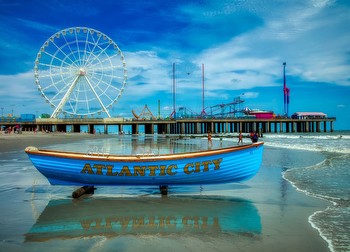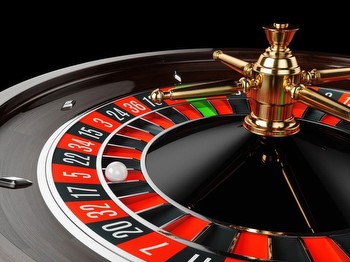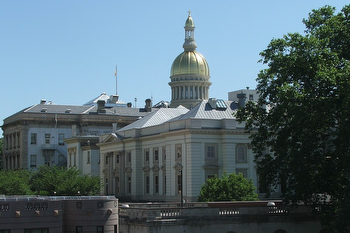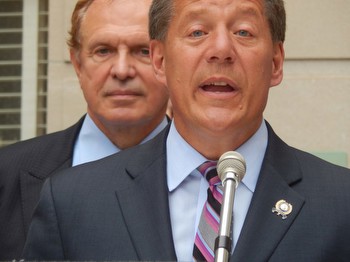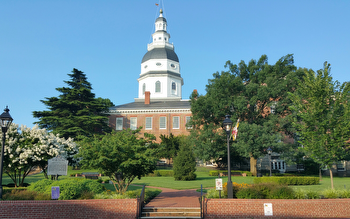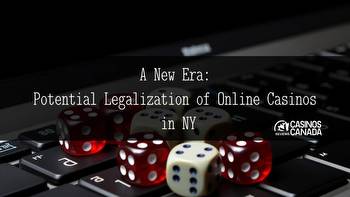Hike taxes on internet gambling
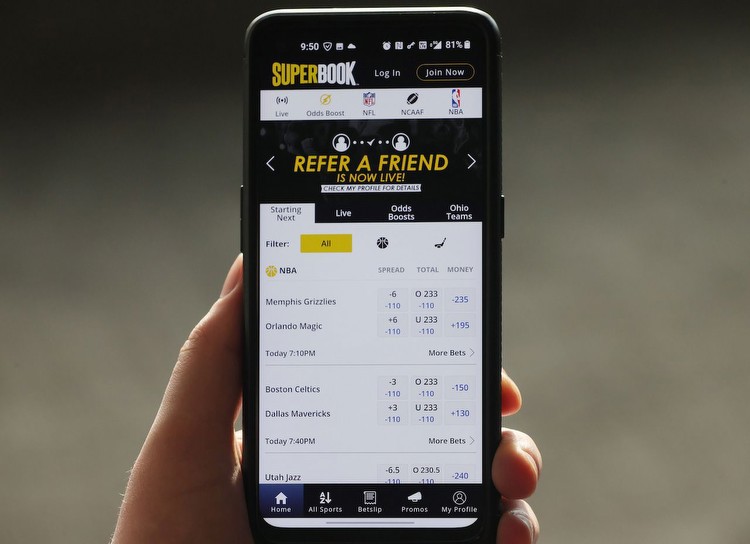
Online gambling -- a recession-proof, pandemic-proof, weather-proof industry -- continues to explode in New Jersey. The casinos and their internet gaming partners made $1.9 billion in online wagering in 2023 (a 16% jump from the previous year) and another $1 billion in online sports betting. This revenue keeps the lights on in Atlantic City.
But the state’s tax collection from this bonanza is relatively meager, at least by Jersey standards. While the casinos and their partners cash in lavishly with online gambling, they give only 15% of their profits to the state for online gaming revenue and are taxed 13% on their sports betting revenue. New York, by contrast, slams its online sports books with a 51% tax on their profits.
So as Jersey faces a fiscal squeeze in the upcoming budget cycle, Sen. John McKeon (D-Essex) has drafted a bill that doubles those online tax rates to 30% -- fully aware the casino lobby will move to DEFCON 1. But commensurate tax rates and the potential uses for this additional revenue make it a tempting proposal that deserves a thoughtful discussion.
To wit: McKeon says the tax hike would bring the state at least another $150 million, and he happened to notice that the outrageous fare increase on NJ Transit commuters in Gov. Murphy’s budget is designed to fill NJT’s $106 million budget hole.
“That’s just one way to use it – it could also go to education funding,” McKeon said. “But whatever it might be, these are windfall profits at the end of the day. And raising their tax rate is not going to hurt casinos, no matter how much we’re going to hear that.
“But rather than hitting hard-working people for revenue enhancers, isn’t it our job to ask, ‘Where else should we be looking?’”
Predictably, the Casino Association of New Jersey will oppose it. Some budget hawks, such as Sen. Declan O’Scanlon (R-Monmouth), are incredulous: “Simply saying, ‘This tax is low, it should go up’ -- that is anathema to me,” he said.
And Dr. Jane Bokunewicz, the director of the Levenson Institute of Gaming at Stockton State, believes that “a tax hike of this magnitude, especially if it were implemented on a short timeline, would be a major shock to the industry.”
But she added that “Beyond that, it is hard to say specifically what it would mean in terms of jobs or how it might impact business decisions for individual properties. It’s reasonable to guess that it would negatively impact profitability.”
There is no evidence that higher tax rates affect revenue. Pennsylvania has among the highest tax rates for online casino gaming (54%) and sports wagering (36%), but it just recorded an all-time high of $215 million in gross revenue in February.
Other states are increasing their rates on all sports wagering: In Ohio, where it’s only been legal for 15 months, Gov. Mike DeWine is doubling the rate to 20%. In Illinois, Gov. JB Pritzker is increasing the tax rate on sports bets from 15 to 35%.
McKeon’s bill has no impact on the customer – the tax hike would affect only the online casino/sports book profits – but he knows it’s a hard sell. He admits that when he shared his idea with Senate President Nick Scutari and Budget chairman Paul Sarlo during the governor’s budget address, four eyebrows went up.
“But at the end of the day, they were shocked at the disparity, when I told them the rates of the other states,” McKeon said. “That in itself puts it on the table.”
It belongs on the table – particularly sports revenue, because no one foresaw its staggering growth potential when it began in August 2018. In January, New Jersey set its all-time records for sports handle ($1.7 billion) and revenue ($170.8 million) – that’s more than double the revenue from January 2022 – and virtually all of this sports betting (98%) is conducted online.
There are only a few dozen online sports betting operators in New Jersey,and most of them have a very low overhead. If a tax hike damages their ability to compete, we’d like to hear it, especially with startups. But we’re glad McKeon has started the conversation.
Our journalism needs your support. Pleaseto NJ.com.








